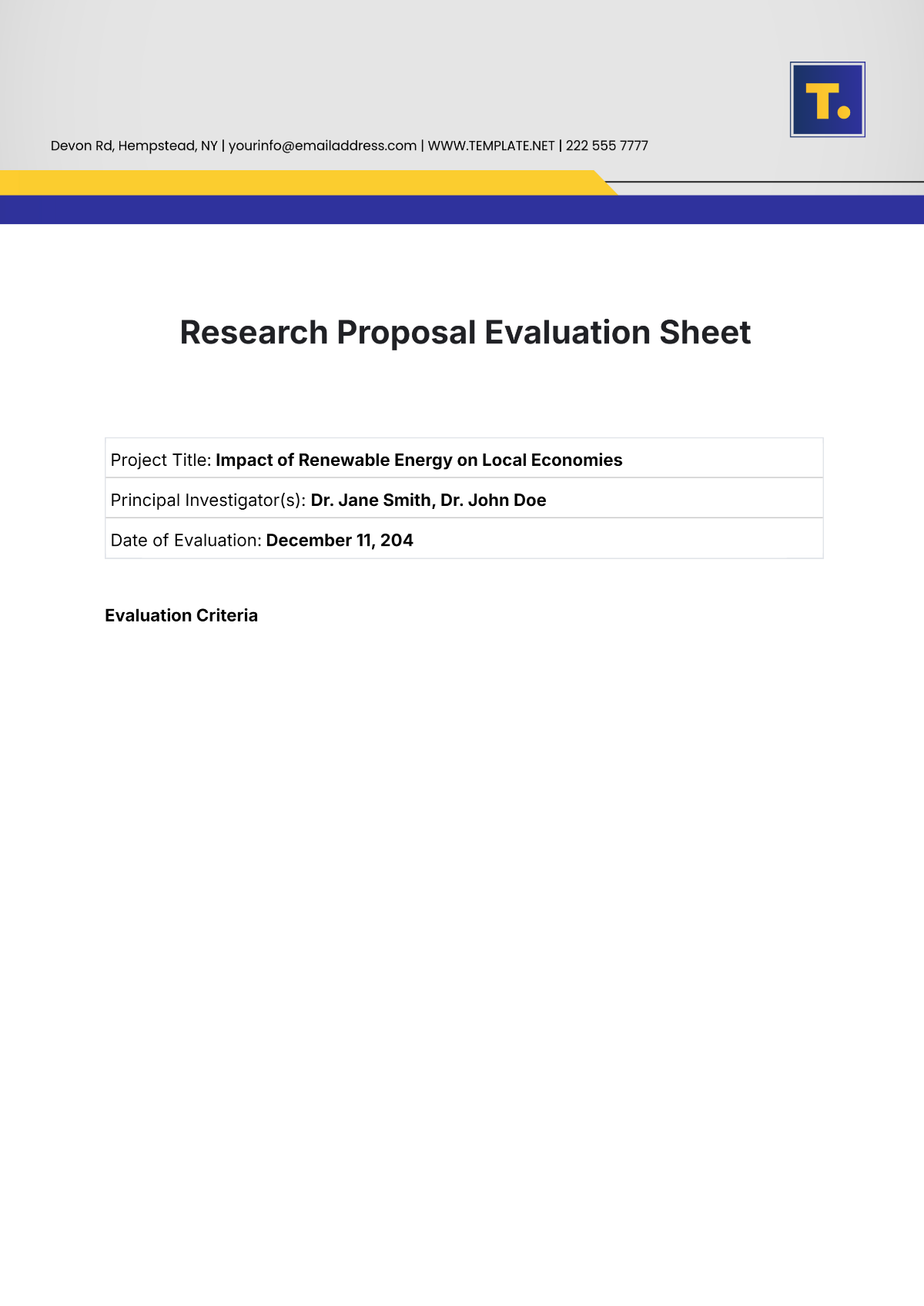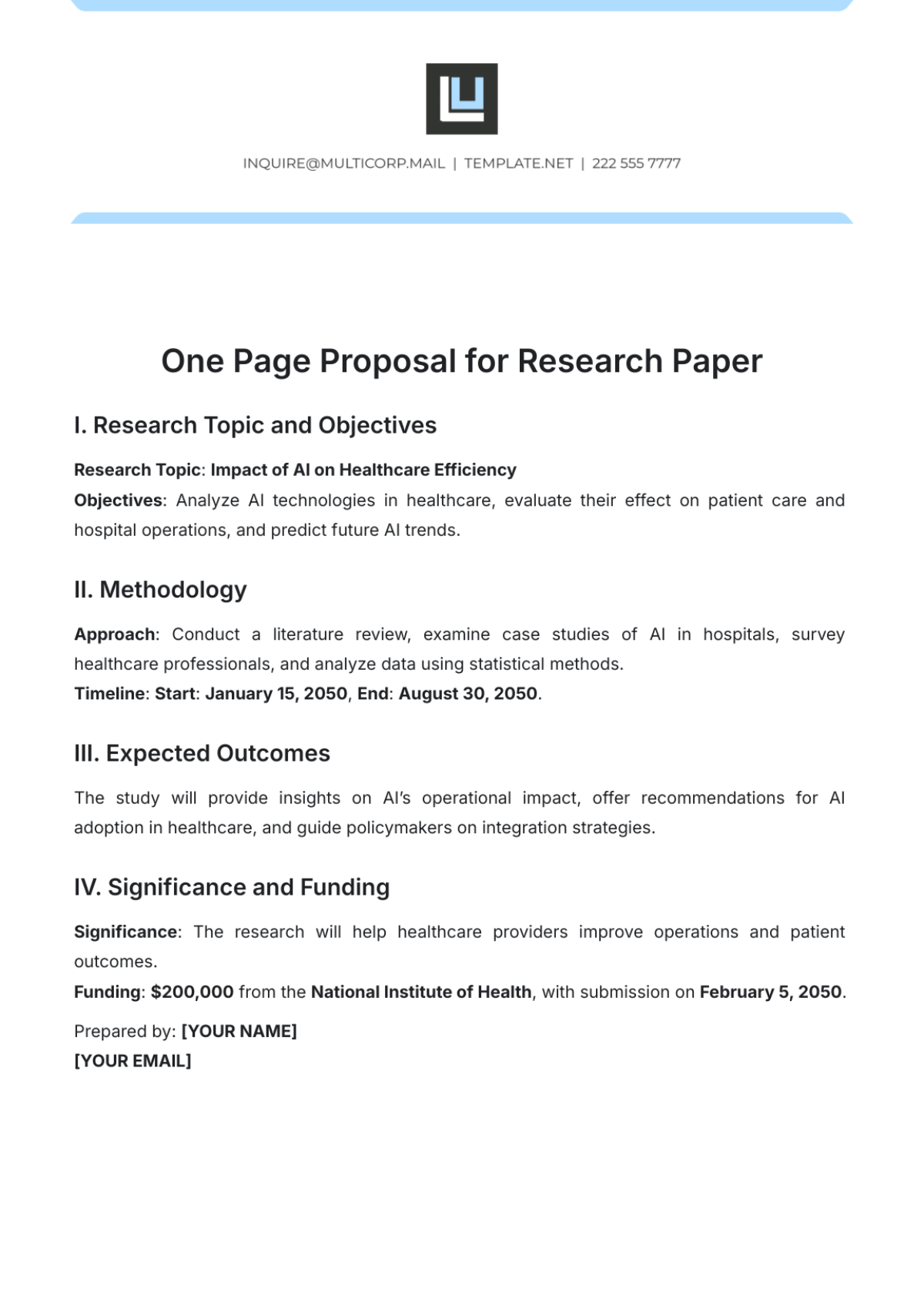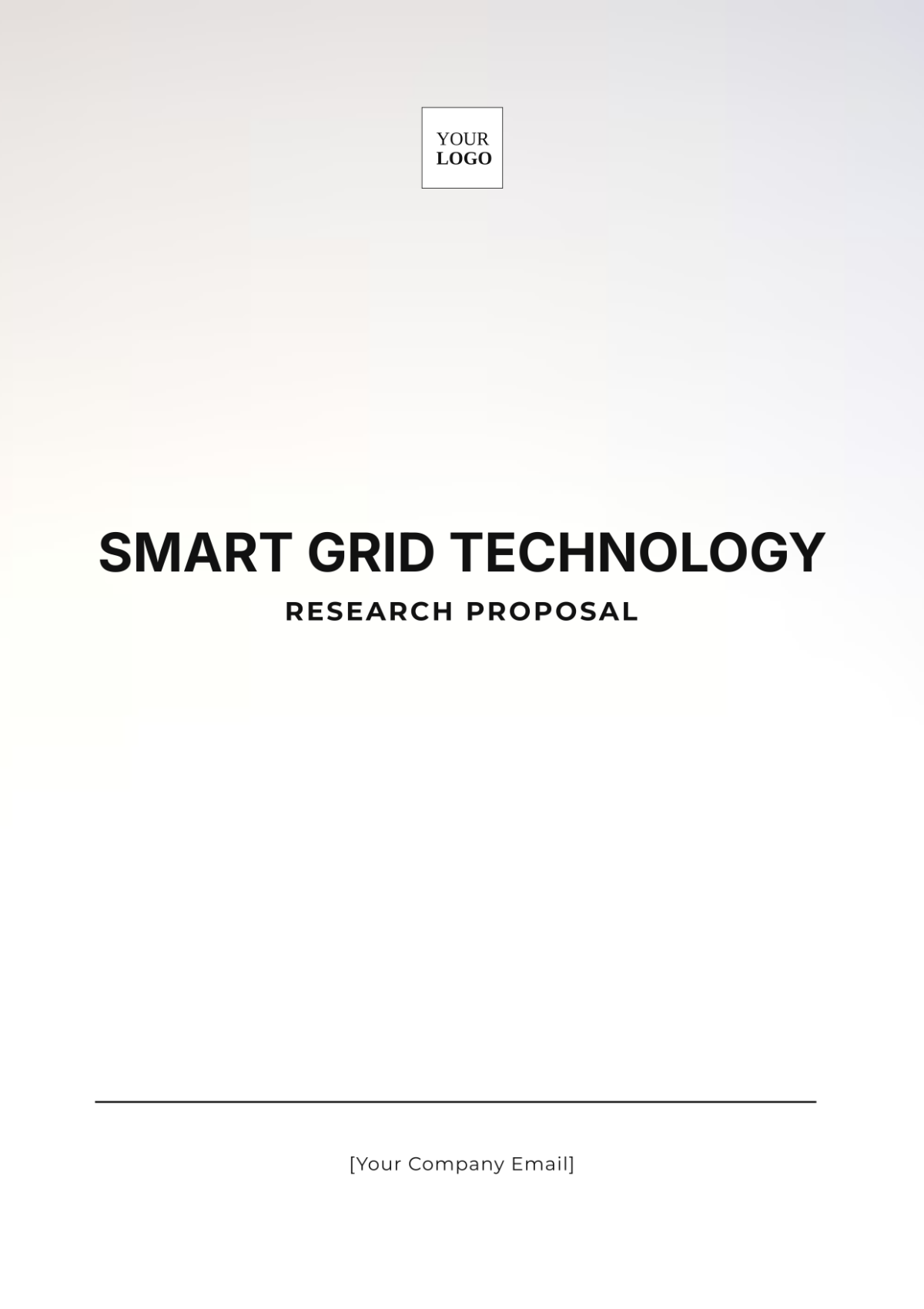Smart Grid Technology Research Proposal
Prepared By: [Your Name]
I. Introduction
Smart Grid Technology represents a transformative advancement in electricity management, aimed at improving the efficiency, reliability, and sustainability of power distribution networks. This research proposal seeks to investigate the applications, benefits, and challenges associated with the implementation and development of smart grids.
II. Background
The traditional electrical grid faces several critical challenges, including outdated infrastructure, rising energy demands, and the integration of renewable energy sources. Smart Grid Technology offers a solution by modernizing the grid with advanced digital communication technologies, which enhance the management of electricity flow and support a more resilient and flexible power system.
III. Objectives
Analyze the Current State: Examine the current status and evolution of smart grid technology, including recent advancements and current implementations.
Identify Key Components and Functions: Define the essential elements and functionalities of smart grids, including hardware, software, and communication technologies.
Evaluate Benefits: Assess the advantages of smart grids in terms of operational efficiency, grid reliability, and environmental sustainability.
Assess Challenges: Identify and analyze the obstacles and barriers to the widespread adoption of smart grid technologies, including technical, economic, and regulatory issues.
Explore Future Trends: Investigate emerging trends, innovations, and potential future developments in smart grid technology.
IV. Literature Review
A review of existing literature will provide a solid foundation for understanding smart grid technology. Key studies include:
Chahal, Baweja, & Kaur (2050): Smart Grid Technologies: A Review
This study emphasizes the potential of smart grids to significantly enhance grid reliability and operational efficiency by integrating advanced technologies and improved data analytics.Güngör et al. (2051): Smart Grid Technologies: Communication Technologies and Standards
This paper explores the critical role of communication technologies and standardization in the successful implementation of smart grids, focusing on interoperability and data exchange protocols.
V. Methodology
A. Research Design
A mixed-methods approach will be employed, combining qualitative and quantitative methods to provide a comprehensive analysis of smart grid technology.
B. Data Collection
Literature Review: Systematic review of academic journals, industry reports, and relevant publications.
Interviews: Conduct in-depth interviews with industry experts, policymakers, and key stakeholders to gather insights and perspectives.
Case Studies: Analyze case studies of successful smart grid implementations in various regions to identify best practices and lessons learned.
Surveys: Distribute surveys to consumers and utility providers to gather data on perceptions, experiences, and expectations related to smart grid technology.
C. Data Analysis
Quantitative Analysis: Utilize statistical tools to analyze survey data and identify trends and correlations.
Qualitative Analysis: Employ thematic analysis to interpret interview transcripts and case study findings, highlighting key themes and insights.
VI. Expected Outcomes
Comprehensive Understanding: Detailed overview of the current state and evolution of smart grid technology.
Identification of Benefits: Clear understanding of the operational, reliability, and sustainability benefits of smart grids.
Evaluation of Challenges: In-depth analysis of the barriers to smart grid adoption and potential strategies to overcome them.
Recommendations: Practical recommendations for policymakers, utility providers, and stakeholders to facilitate the transition to smart grids.
Future Insights: Insight into emerging trends and future directions in smart grid technology.
VII. Conclusion
This research aims to provide a thorough analysis of smart grid technology, exploring its potential to transform the electric power industry. By addressing both the benefits and challenges associated with smart grids, this study will offer valuable guidance for promoting the adoption of smart grid technology and advancing toward a more efficient and sustainable energy future.
VIII. References
Chahal, H., Baweja, H. S., & Kaur, P. (2020). Smart Grid Technologies: A Review. International Journal of Electrical Power & Energy Systems, 117, 105618.
Güngör, V. C., Sahin, D., Kocak, T., Ergüt, S., Buccella, C., Cecati, C., & Hancke, G. P. (2011). Smart Grid Technologies: Communication Technologies and Standards. IEEE Transactions on Industrial Informatics, 7(4), 529-539.

















































